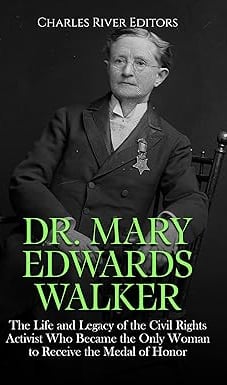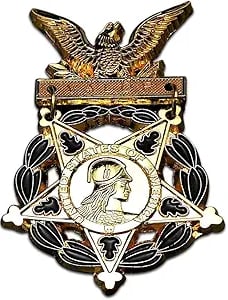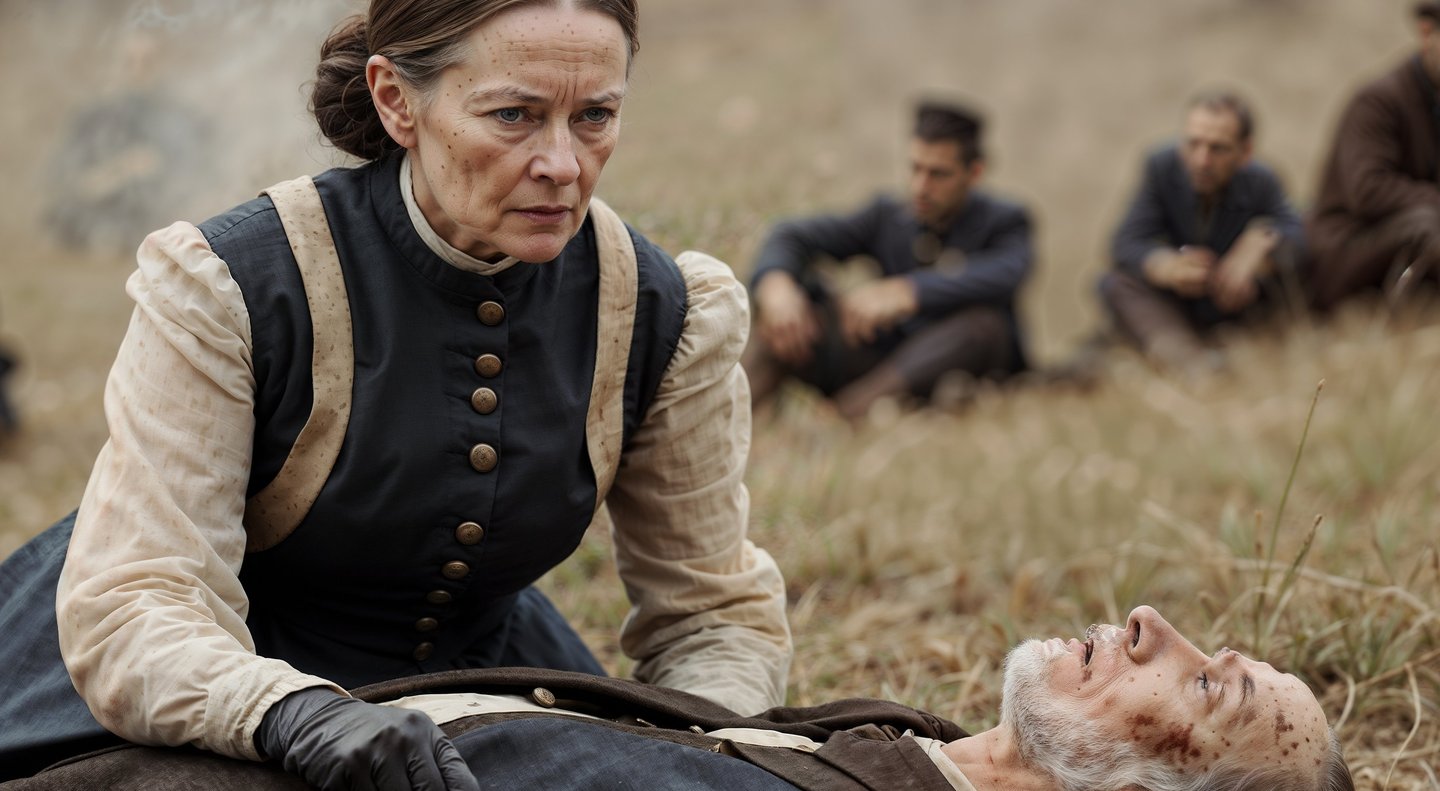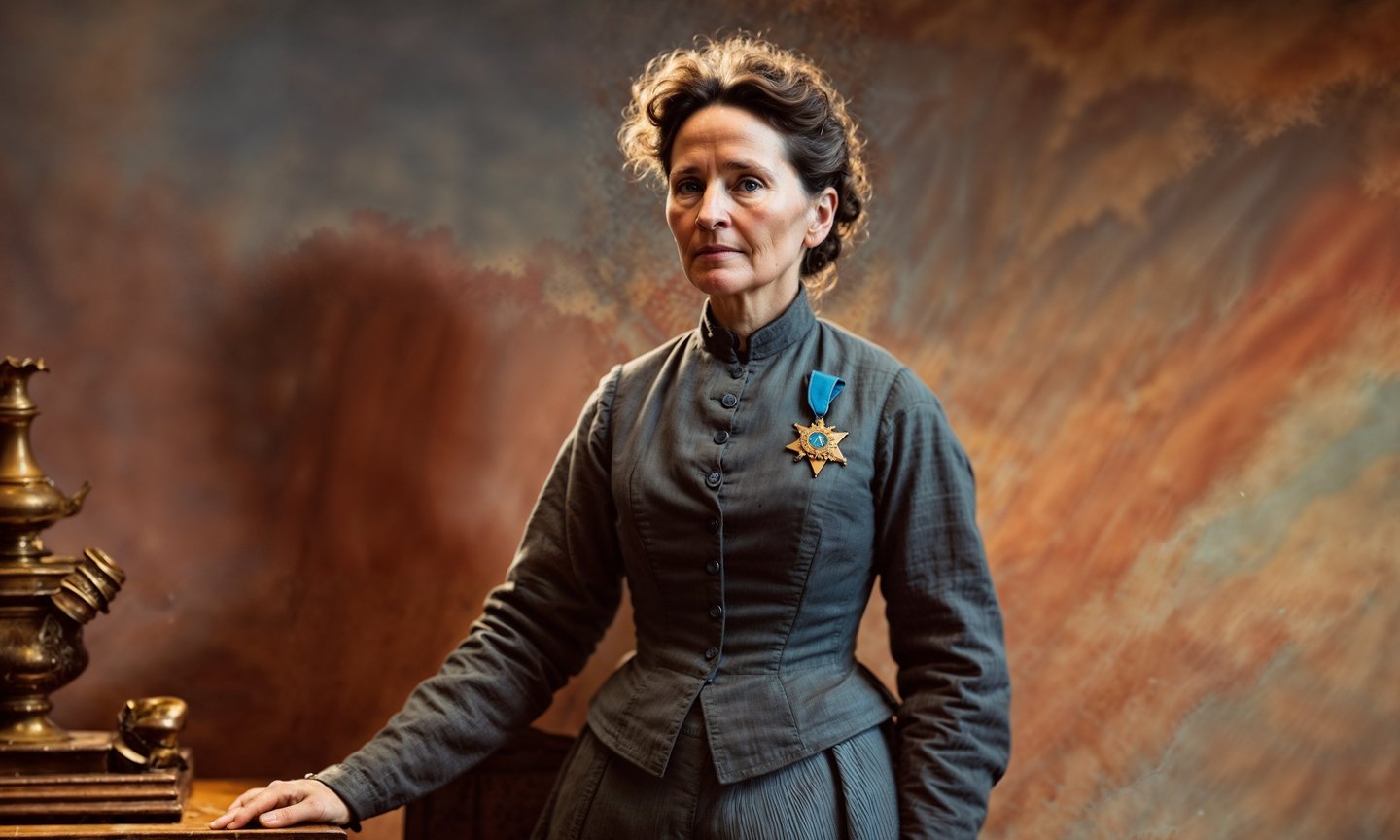A Medal of Honor: The Story of Dr. Mary Edwards Walker
This week, discover the extraordinary life of Dr. Mary Edwards Walker, the first female surgeon in U.S. military history and a Medal of Honor recipient. From her groundbreaking medical career to her relentless fight for women’s rights, Dr. Walker’s story is one of courage, defiance, and unwavering commitment to justice. Let's explore how she broke barriers, inspired change, and became a trailblazer in history.
HISTORICAL FIGURESWARS AND BATTLES
Michael Keller
8/26/202410 min read
"You must come to terms with the reality that nothing outside ourselves, be it people or things, is actually responsible for our happiness." [1] This profound insight from Dr. Mary Edwards Walker encapsulates the spirit of a woman who defied conventions and overcame immense obstacles in her quest for justice and equality. As we delve into her remarkable life, we uncover a trailblazer whose legacy resonates through history and continues to inspire.
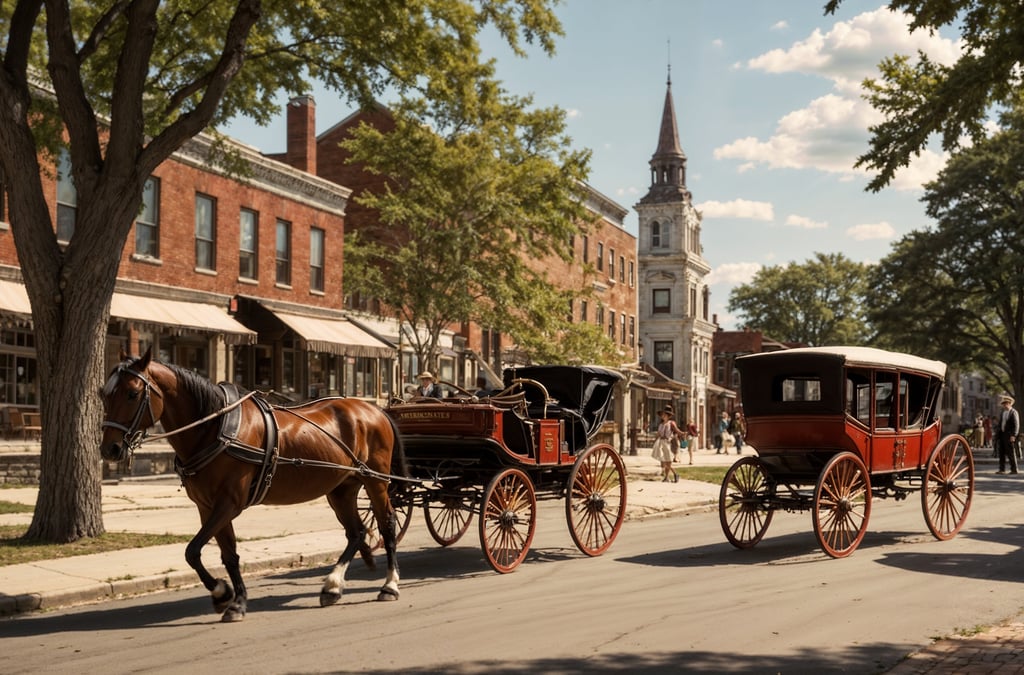

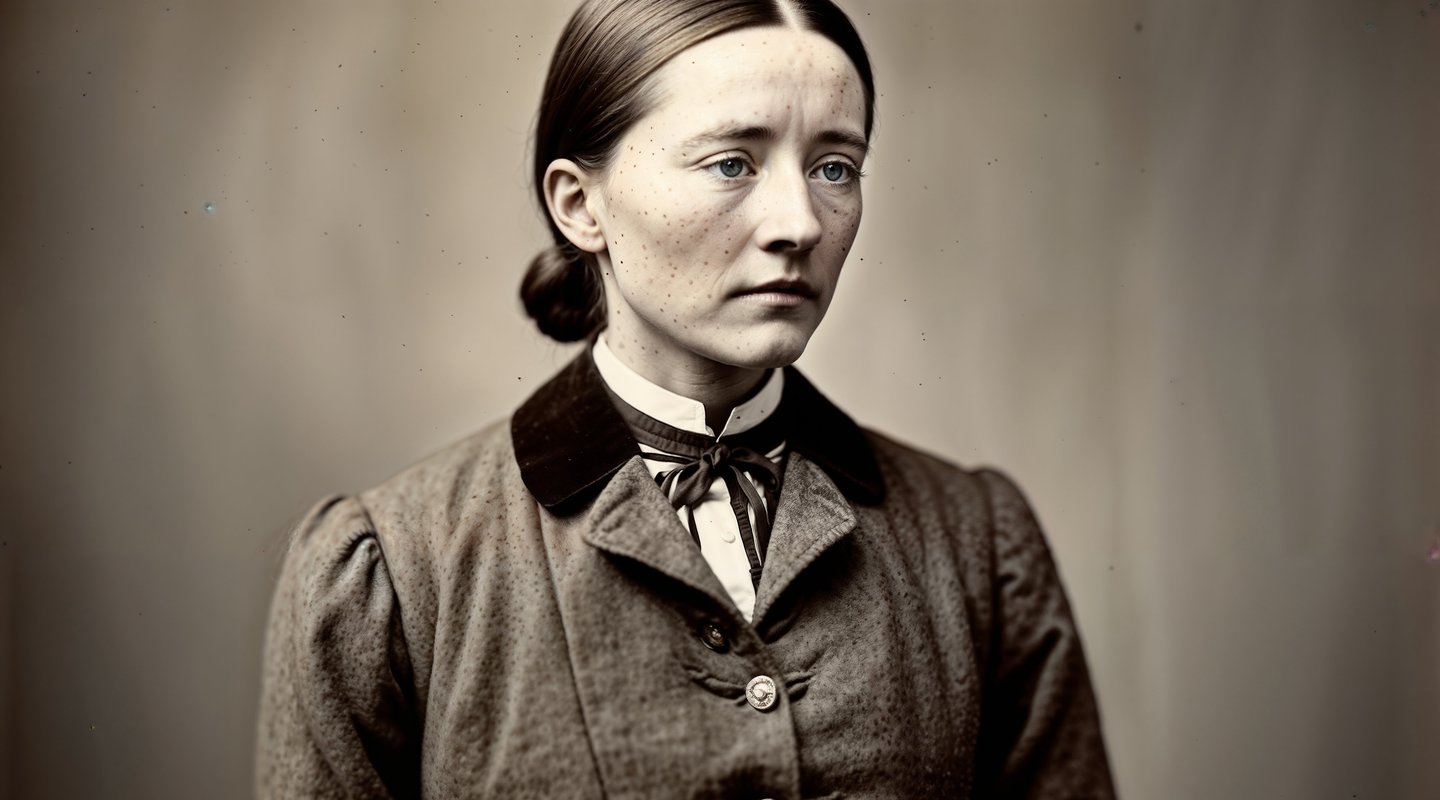

A Life of Defiance and Determination
Dr. Mary Edwards Walker (1832–1919) was a pioneering figure whose career and personal convictions continually challenged the norms of her time. [2] Born in Oswego, New York, Walker was the daughter of a progressive and independent family. Her father, a fervent abolitionist and supporter of women’s rights, instilled in her a sense of social justice and an unyielding spirit of resilience. [3] This early exposure to progressive ideas shaped her future endeavors and set her on a path of remarkable achievements.
Walker made history in 1855 by earning her medical degree from Syracuse Medical College, a groundbreaking accomplishment in an era when women were rarely admitted to medical schools. [4] Her perseverance and intellectual prowess were evident from the start, as she navigated the barriers imposed by a male-dominated profession. After graduating, she embarked on a career that included establishing a medical practice with her husband, but the outbreak of the American Civil War soon redirected her trajectory.
The Civil War presented an unprecedented opportunity for Walker to apply her skills in a new and challenging context. At a time when women were largely excluded from military roles, Walker’s relentless determination and conviction drove her to seek a position within the Union Army. Her pursuit was met with skepticism and resistance; military officials were hesitant to accept a woman into their ranks, reflecting the deeply entrenched gender biases of the period. Undeterred, Walker initially volunteered her services and was appointed as a contract surgeon, working in temporary hospitals in Washington, D.C., where she began to earn the respect of her peers and patients. [5]
Walker’s role in the Union Army marked a significant shift in her career. Her appointment to the Army of the Cumberland and later to the 52nd Ohio Infantry as a surgeon was a historic first—she became the first female surgeon in the U.S. Army. Her contributions went beyond traditional medical care; she often worked in the most challenging and hazardous conditions, providing treatment to soldiers on the battlefield and in field hospitals. Her presence on the front lines was a testament to her bravery and commitment, showcasing her extraordinary dedication to her patients and her country.
Walker’s approach to medicine and her role in the war effort were emblematic of her broader commitment to challenging societal norms. Her willingness to take on roles traditionally reserved for men and her perseverance in the face of institutional resistance demonstrated her unwavering resolve. Her contributions during the Civil War were not just limited to her medical work; they were a powerful statement of what could be achieved when one’s skills and determination overcame the barriers of gender and convention.
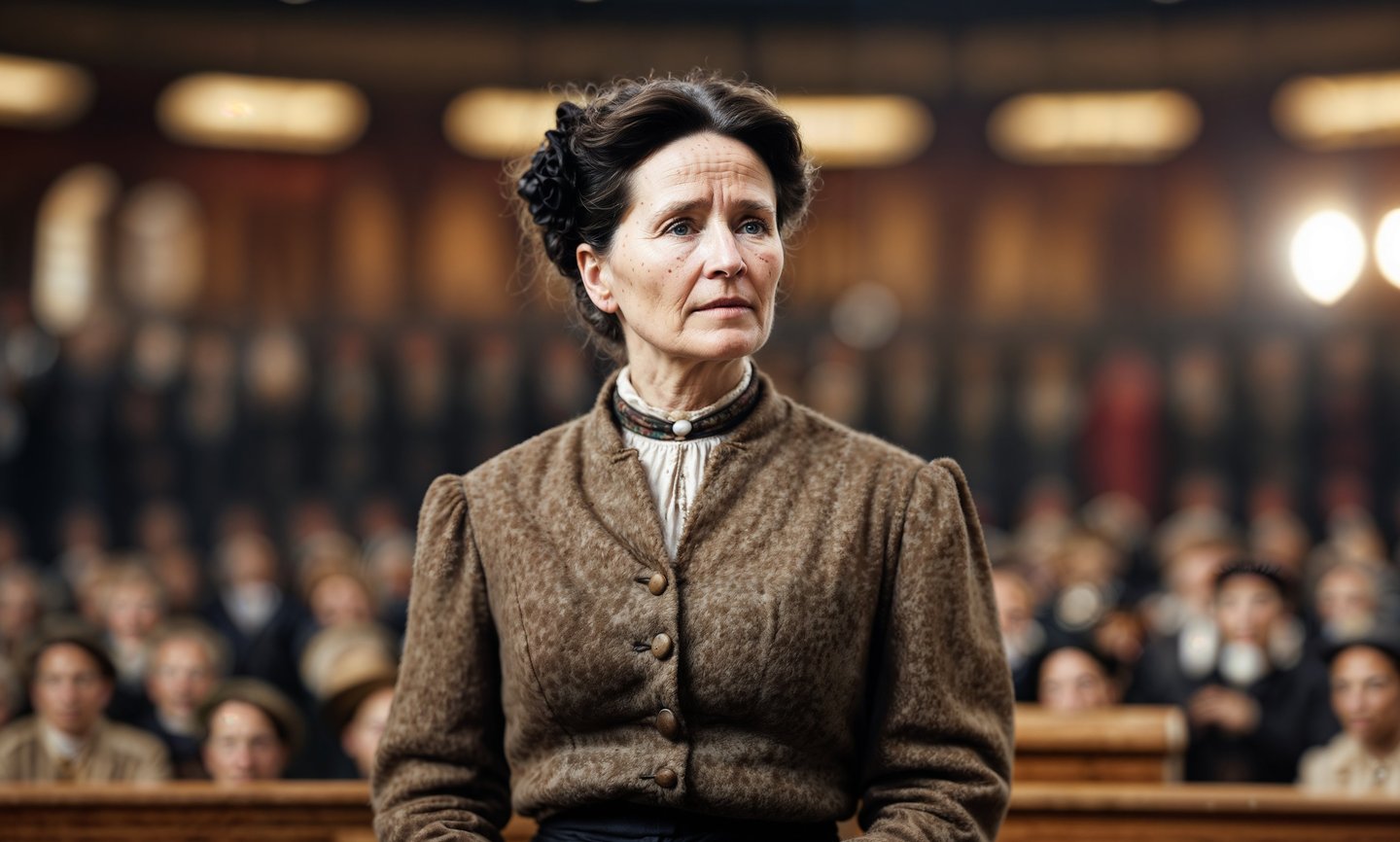

Challenges Beyond the Battlefield
Dr. Mary Edwards Walker’s bravery and resolve were not confined to her military service; they permeated every aspect of her life, particularly in her personal struggles against societal norms. In 1870, while in New Orleans, Walker faced an arrest that highlighted the intense scrutiny and derision she experienced due to her refusal to conform to traditional gender norms. [8] She was apprehended and ridiculed for wearing men’s clothing, which she believed to be practical and liberating. The arresting officer, demonstrating a lack of respect for her choices, twisted her arm and inquired about her personal relationships, an indignity that underscored the broader societal resistance to her nonconformity. This incident was not an isolated event but rather a reflection of the numerous challenges she faced for her progressive beliefs on attire.
Walker’s commitment to practical clothing that allowed freedom of movement led her to frequently challenge societal expectations. Her attire was a visible symbol of her advocacy for women’s rights and autonomy, but it also made her a target for legal and social reprimand. She was arrested several times for her choice of clothing and faced public mockery. Nevertheless, Walker remained steadfast in her defense of her right to wear what she deemed appropriate, famously asserting, “I don’t wear men’s clothes, I wear my own clothes.” This statement encapsulated her broader philosophy that personal freedom should not be constrained by arbitrary societal norms.
In addition to her battles over dress reform, Walker’s post-war life was marked by significant contributions to various causes. After the Civil War, she was awarded a disability pension for the partial muscular atrophy she suffered during her imprisonment. The pension, initially set at $8.50 a month, was a modest recognition of her service and sacrifice but was later increased to $20 per month in 1899, reflecting the growing acknowledgment of her contributions and the physical toll they took on her.
Walker channeled her experiences and convictions into her work as a writer and lecturer. In one of her influential lectures on dress reform, Walker argued, “The freedom of women is intimately connected with their clothing. Practical attire not only ensures comfort but empowers women to engage in the world on equal terms.” [9] This perspective was revolutionary and highlighted her commitment to merging practicality with women’s rights. Her writings, which included two books focusing on women’s rights and dress reform, were instrumental in advancing these causes and shedding light on the importance of practical and equitable solutions for women. [10]
Her involvement with the Central Woman's Suffrage Bureau in Washington, D.C., further demonstrated her unwavering dedication to women’s suffrage and social reform. [11] As a member of this organization, Walker actively participated in efforts to secure voting rights for women and promote progressive social change. Her activism and public speaking engagements amplified her voice and helped to challenge the entrenched resistance to her forward-thinking ideas.
Dr. Walker’s life was a testament to her relentless pursuit of justice and reform, extending far beyond her military service and encompassing a broad range of social issues. Her legacy continues to inspire those who champion the cause of personal freedom and societal progress.
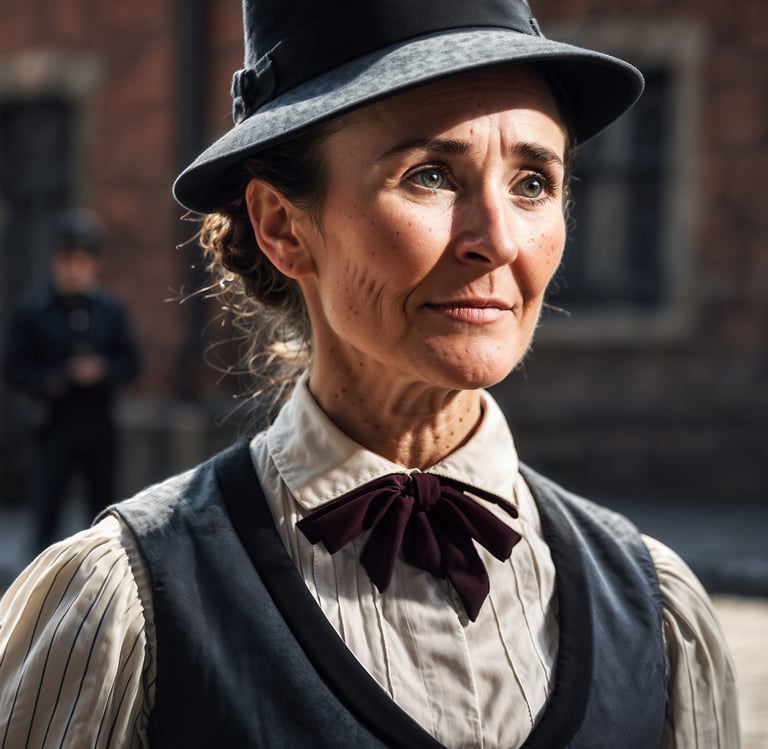

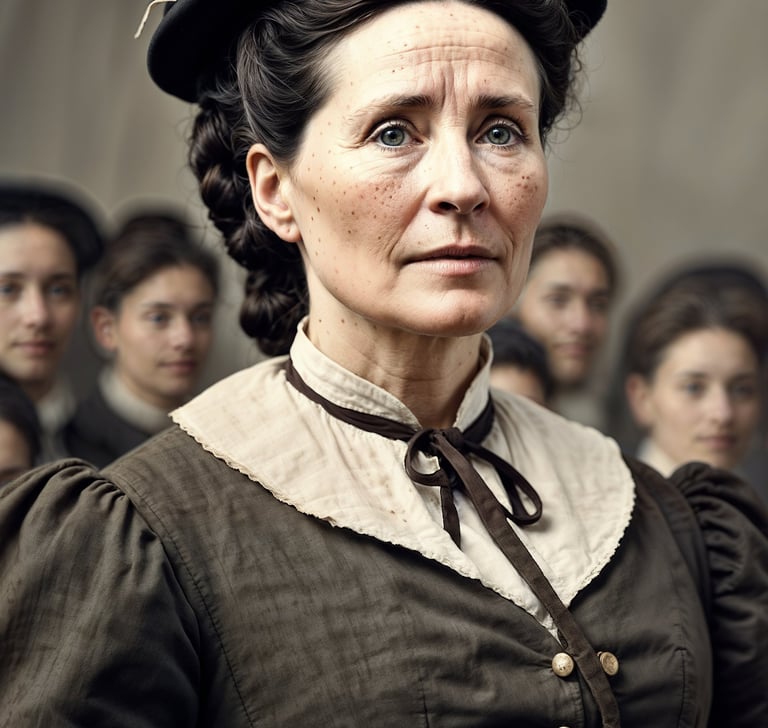

Dr. Mary Edwards Walker was a trailblazing figure in American history, known for her courage, innovation, and defiance of societal expectations. As a pioneering surgeon, Walker broke barriers in medicine and became one of only eight civilians to receive the Medal of Honor for her invaluable service during the Civil War. Her unconventional approach to life, including her choice to wear practical clothing rather than traditional dresses, made her a target of ridicule, yet she remained undeterred in her pursuits. Though her contributions were overlooked for many years, recent efforts have brought her remarkable legacy back into the spotlight. Today, she is celebrated with statues, commemorative stamps, and the possibility of a US Army fort being named in her honor.
US Army Medal of Honor Replica Badge
Trials and Triumphs on the Battlefield
Dr. Mary Edwards Walker's courage was put to the ultimate test when she crossed enemy lines to provide crucial medical care for civilians caught in the crossfire of the American Civil War. In a daring and compassionate move, Walker ventured into Confederate-held territory to attend to the wounded and ill, embodying her unwavering commitment to humanitarian principles. This act of bravery, however, led to her capture by Confederate forces, who suspected her of espionage. [6]
Held as a prisoner of war in Richmond, Virginia, Walker faced the harsh realities of incarceration, including overcrowding, poor sanitation, and inadequate nutrition. Despite the severe conditions, her spirit remained unbroken. [7] Her imprisonment was not merely a consequence of her actions but also a testament to her defiance against the conventions of war and her dedication to treating those in need, regardless of their allegiance.
Walker’s exceptional service and dedication during the war were eventually recognized with the Medal of Honor. Originally, the Medal of Honor was awarded based on the broad interpretation of distinguished service. However, in the early 20th century, stricter eligibility requirements were introduced, stipulating that only enlisted personnel and officers could receive the award. This shift in criteria led to a reevaluation of recipients like Dr. Walker, whose civilian status no longer met the new standards. At the time, the Medal was awarded for distinguished service rather than acts of gallantry alone, reflecting a broader interpretation of valor and commitment. Walker's receipt of this prestigious honor underscored the extraordinary nature of her contributions and her role as a trailblazer in military medicine.
However, Walker's recognition was not without its complications. In 1917, the Army’s Medal of Honor Board undertook a review of Medal of Honor recipients, which led to the removal of 911 names from the honor roll, including Walker’s. This decision was based on strict eligibility requirements established by laws passed in 1862, 1863, and 1904, which stipulated that only officers or enlisted service members could be awarded the Medal of Honor. As a civilian contract surgeon, Walker’s status did not meet these criteria, leading to the removal of her name from the official roster.
Walker’s removal from the Medal of Honor Roll was met with significant controversy and debate. Critics argued that the removal overlooked her unparalleled contributions and the context in which the medal was awarded. The decision reflected a broader tension between evolving military standards and the recognition of early trailblazers who defied conventional roles.
The exclusion of Walker’s name from the Medal of Honor Roll was part of a broader reevaluation that also affected other notable figures, such as William F. "Buffalo Bill" Cody. This decision sparked considerable debate and controversy, highlighting the complexities of military awards and the evolving standards for recognition.
Having demonstrated unparalleled bravery and commitment during the war, Dr. Walker's resolve did not wane with the cessation of hostilities. Instead, her wartime experiences and her fight against gender norms continued to fuel her advocacy for social and reform causes.
It wasn’t until 1977 that Walker’s name was restored to the Medal of Honor Roll, rectifying the historical oversight and acknowledging her significant contributions to the Union’s cause. The reinstatement of her award was a long-overdue recognition of her bravery and dedication, correcting an injustice that had persisted for decades. Walker’s story serves as a poignant reminder of the challenges and triumphs faced by those who defy conventions and blaze new trails in the pursuit of justice and service.
As the smoke of the battlefield cleared, Dr. Walker’s commitment to breaking barriers remained steadfast. Her post-war life mirrored her wartime resolve, as she shifted her focus from medical service to societal reform, challenging outdated gender norms and advocating for women’s rights with the same fervor that had driven her in uniform.
What challenges or societal norms have you faced in your own journey toward personal or professional goals? We invite you to share your thoughts. For feedback or inquiries, email us at contact@archivinghistory.com. We look forward to hearing from you!
Join Archiving History as we journey through time! Want to stay-tuned for our next thrilling post? Subscribe!
Follow us on Facebook, Instagram, YouTube and TikTok for captivating insights, engaging content, and a deeper dive into the fascinating world of history. Just click here!
Source(s):
[1] Walker, Mary Edwards. Unmasked, or the Science of Immorality. New York: J. M. Stoddart & Co., 1878.
[2] Levine, Ellen. Dr. Mary Edwards Walker: Civil War Surgeon and Feminist (2009).
[3] Silber, Nina. Daughters of the Union: Northern Women Fight the Civil War (2005).
[4] Lunardini, Christine. Women Doctors in War: The True Story of Dr. Mary Edwards Walker. New York: HarperCollins, 1990.
[5] Keller, Gary. Mary Edwards Walker: An American Heroine. Washington, D.C.: American Hero Publishing, 2004.
[6] Moss, Laura. Mary Edwards Walker: The Woman Who Defied Convention. New York: Twayne Publishers, 1996.
[7] Lunardini, Christine. Women Doctors in War: The True Story of Dr. Mary Edwards Walker. New York: HarperCollins, 1990.
[8] Adams, Katherine H. Mary Edwards Walker: An Advocate for Women's Rights. Philadelphia: Penn Press, 2011.
[9] Adams, Katherine H. Mary Edwards Walker: An Advocate for Women's Rights. Philadelphia: Penn Press, 2011.
[10] Harper, Ida Husted. The History of Woman Suffrage (1922).
[11] Walker, Dale L. Mary Edwards Walker: Above and Beyond (2005).
[12] National Women's Hall of Fame. Mary Edwards Walker (2000).
This Badge is handmade Craftsmanship. If you are interested in modern history, it will be a perfect addition to your collection. It is full size and high quality. An exquisite reproduction
Dr. Mary Edwards Walker was a trailblazing figure in American history, known for her courage, innovation, and defiance of societal expectations. As a pioneering surgeon, Walker broke barriers in medicine and became one of only eight civilians to receive the Medal of Honor for her invaluable service during the Civil War. Her unconventional approach to life, including her choice to wear practical clothing rather than traditional dresses, made her a target of ridicule, yet she remained undeterred in her pursuits. Though her contributions were overlooked for many years, recent efforts have brought her remarkable legacy back into the spotlight. Today, she is celebrated with statues, commemorative stamps, and the possibility of a US Army fort being named in her honor.
A Lasting Legacy
Dr. Mary Edwards Walker’s life is a powerful narrative of resilience, defiance, and reform. Her pioneering work in medicine, coupled with her relentless pursuit of social justice, left an indelible mark on history. The restoration of her Medal of Honor in 1977 and her induction into the National Women’s Hall of Fame in 2000 are testaments to her significant contributions and enduring legacy. [12]
Walker’s story serves as a beacon of inspiration, reminding us of the power of inner strength and the importance of challenging societal norms. Her courageous actions and steadfast principles continue to resonate, encouraging us to confront and overcome the barriers in our own lives.



